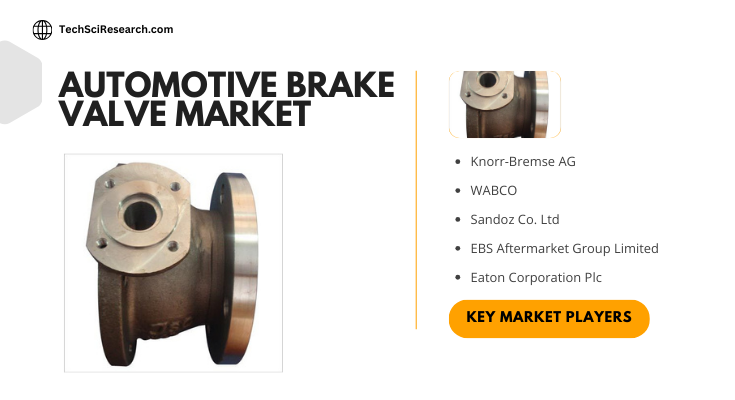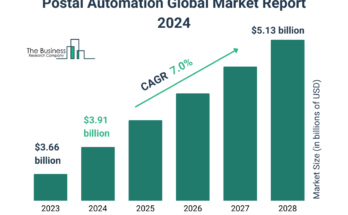According to TechSci Research report, “Automotive Brake Valve Market – Global Industry Size, Share, Trends, Competition Forecast & Opportunities, 2028”, the Global Automotive Brake Valve Market stood at USD 3.15 Billion in 2022 and is anticipated to grow with a CAGR of 6.54% in the forecast period, 2024-2028. The Global Automotive Brake Valve Market is a crucial component of the automotive industry, contributing significantly to vehicle safety and performance. Brake valves serve as vital elements in the braking system, controlling the distribution and release of brake fluid to ensure effective and responsive braking.
One of the primary drivers shaping the market is the increasing focus on safety standards and regulations in the automotive sector. Governments and regulatory bodies worldwide are imposing stringent safety requirements, prompting automakers to invest in advanced braking technologies, including innovative brake valve solutions. The market is, therefore, driven by a continuous pursuit of enhancing vehicle safety and meeting evolving regulatory standards.
Geographically, the market exhibits variations in demand and adoption rates. Developed automotive markets in regions like North America and Europe often lead in the adoption of new brake valve technologies due to stringent safety regulations and a strong emphasis on innovation. Meanwhile, emerging markets in Asia-Pacific and Latin America are witnessing a surge in demand for automotive brake valves as vehicle ownership rises and safety awareness increases.
The market encompasses various types of brake valves, including hydraulic brake valves, air brake valves, and electronic brake valves. The choice of brake valve technology often depends on the type of vehicle, with commercial vehicles commonly utilizing air brake systems and passenger vehicles opting for hydraulic systems. The market, therefore, caters to diverse vehicle types, reflecting the global automotive industry’s broad spectrum.
Competitive dynamics within the automotive brake valve market are marked by the presence of established players and a continuous influx of new entrants, fostering innovation and technological advancements. Market participants frequently engage in strategic collaborations and partnerships to enhance their product portfolios and expand their global footprint.
Challenges facing the market include the need for compatibility with evolving vehicle architectures, integration with emerging technologies like electric vehicles (EVs), and addressing environmental concerns related to manufacturing processes. The market is characterized by ongoing efforts to balance technological innovation with environmental sustainability and regulatory compliance.
In conclusion, the Global Automotive Brake Valve Market is a dynamic sector driven by safety imperatives, technological innovation, and regional variations in demand. Ongoing developments in vehicle technologies and regulatory frameworks are poised to shape the trajectory of this market in the coming years. For the most current and specific information, please refer to the latest market reports and industry updates.
Browse over market data Figures spread through 180 Pages and an in-depth TOC on “ Global Automotive Brake Valve Market.” @ https://www.techsciresearch.com/report/air-brake-system-market/20404.html
In North America, the automotive brake valve market is characterized by a strong emphasis on safety standards and technological innovation. The region, particularly the United States and Canada, is known for its early adoption of advanced driver assistance systems (ADAS) and electronic braking technologies. The mature automotive aftermarket in North America also contributes to the demand for replacement brake valves. Regulatory compliance and consumer preference for high-tech safety features drive continuous advancements in brake valve technologies.
Europe is a leading hub for automotive innovation, with countries such as Germany playing a pivotal role in adopting cutting-edge technologies. The European automotive brake valve market is shaped by stringent safety regulations, a focus on environmental sustainability, and the integration of advanced materials. Lightweight design strategies and regenerative braking systems are areas of significant research and development. The presence of premium automakers and a sophisticated consumer base contributes to the demand for high-performance brake valves.
The Asia-Pacific region, and particularly China, is a dynamic and rapidly growing market for automotive brake valves. China, as a major player in the global automotive industry, influences the market with its high production volume and increasing consumer demand. Cost-effective solutions without compromising safety are a key driver in this region, influencing the development of brake valves suitable for a wide range of vehicles. The rise of electric vehicles in countries like China also impacts the brake valve market, creating a need for components compatible with electric drivetrains.
South America presents a diverse landscape for the automotive brake valve market. Economic conditions, varying levels of industrialization, and different regulatory environments contribute to a market that experiences fluctuations. In regions like Brazil and Mexico, where the automotive industry is a significant contributor to the economy, there is a steady demand for brake valves across both passenger and commercial vehicle segments. The market dynamics in Latin America are influenced by factors such as affordability, fuel efficiency, and the adaptability of braking systems to local road conditions.
The Middle East and Africa exhibit unique characteristics in the automotive brake valve market. While the automotive industry in these regions may not be as extensive as in some other parts of the world, there is a growing focus on safety standards and the adoption of advanced technologies. The demand for commercial vehicles in logistics and infrastructure development projects contributes to the market for heavy-duty brake valves. Additionally, as global automotive trends, including electrification, reach these regions, there is an increasing need for brake valves compatible with the evolving landscape.
In conclusion, regional insights into the automotive brake valve market highlight diverse influences and priorities shaping the industry across North America, Europe, Asia-Pacific, Latin America, and the Middle East, and Africa. Manufacturers operating in these regions must navigate unique challenges and leverage opportunities specific to each geographical area to remain competitive in the global market.
Major companies operating in the Global Automotive Brake Valve Market are:
- Knorr-Bremse AG
- WABCO
- Sandoz Co. Ltd
- EBS Aftermarket Group Limited
- Eaton Corporation Plc
- Continental Automotive GmbH
- Poclain Hydraulics
- Federal-Mogul Holdings Corp.
- Alfmeier Precision SE
Download Free Sample Report @ https://www.techsciresearch.com/sample-report.aspx?cid=20404
Customers can also request 10% free customization in this report.
“The global automotive brake valve market underscores its dynamic nature, driven by a confluence of factors such as evolving safety regulations, technological advancements, and regional market dynamics. Continuous innovation and strategic collaborations among industry players are critical to meeting the changing demands of both traditional and emerging automotive markets. The expert perspective emphasizes the importance of staying abreast of regulatory changes, investing in research and development, and fostering global partnerships to navigate the complex landscape of the automotive brake valve industry.,” said Mr. Karan Chichi, Research Director with TechSci Research, a research-based management consulting firm.
“Automotive Brake Valve Market – Global Industry Size, Share, Trends Opportunity, and Forecast, Segmented By Vehicle Type (Passenger Cars, Commercial Vehicles), By Product Type (Metering, Pressure Differential, Proportionating, Combination, Hydraulic and Others), By Material Type (Steel, Copper, Brass and Others), By Region, Competition, 2018-2028”, has evaluated the future growth potential of Global Automotive Brake Valve Market and provides statistics & information on market size, structure, and future market growth. The report intends to provide cutting-edge market intelligence and help decision makers take sound investment decisions. Besides, the report also identifies and analyzes the emerging trends along with essential drivers, challenges, and opportunities in the Global Automotive Brake Valve Market.
You may also read:
Diesel Engine Catalyst Market – Current Analysis and Forecast [2028]
Automatic High Beam Control Market [2028]- Analysing the Exponential Growth
Air Starter Market [2028]- Exploring Robust Growth & Forecast
Automotive Board AC DC Power Inverters Market Set for XX.XX% CAGR Through 2028- Forecasted Growth
Airbag Sensors Market [Latest] Unveiling Growth Opportunities, and Trends
Table of Content-Automotive Brake Valve Market
- Introduction
1.1. Product Overview
1.2. Key Highlights of the Report
1.3. Market Coverage
1.4. Market Segments Covered
1.5. Research Tenure Considered
- Research Methodology
2.1. Objective of the Study
2.2. Baseline Methodology
2.3. Key Industry Partners
2.4. Major Association and Secondary Sources
2.5. Forecasting Methodology
2.6. Data Triangulation & Validation
2.7. Assumptions and Limitations
- Executive Summary
3.1. Market Overview
3.2. Market Forecast
3.3. Key Regions
3.4. Key Segments
- Impact of COVID-19 on Global Automotive Brake Valve Market
- Global Automotive Brake Valve Market Outlook
5.1. Market Size & Forecast
5.1.1. By Value
5.2. Market Share & Forecast
5.2.1. By Vehicle Type Market Share Analysis (Passenger Cars, Commercial Vehicles)
5.2.2. By Product Type Market Share Analysis (Metering, Pressure Differential, Proportionating, Combination, Hydraulic and Others)
5.2.3. By Material Type Market Share Analysis (Steel, Copper, Brass and Others)
5.2.4. By Region Market Share Analysis
5.2.4.1. Asia-Pacific Market Share Analysis
5.2.4.2. Europe & CIS Market Share Analysis
5.2.4.3. North America Market Share Analysis
5.2.4.4. South America Market Share Analysis
5.2.4.5. Middle East & Africa Market Share Analysis
5.2.5. By Company Market Share Analysis (Top 5 Companies, Others – By Value, 2022)
5.3. Global Automotive Brake Valve Market Mapping & Opportunity Assessment
5.3.1. By Vehicle Type Market Mapping & Opportunity Assessment
5.3.2. By Product Type Market Mapping & Opportunity Assessment
5.3.3. By Material Type Market Mapping & Opportunity Assessment
5.3.4. By Regional Market Mapping & Opportunity Assessment
- Asia-Pacific Automotive Brake Valve Market Outlook
6.1. Market Size & Forecast
6.1.1. By Value
6.2. Market Share & Forecast
6.2.1. By Vehicle Type Market Share Analysis
6.2.2. By Product Type Market Share Analysis
6.2.3. By Material Type Market Share Analysis
6.2.4. By Country Market Share Analysis
6.2.4.1. China Market Share Analysis
6.2.4.2. India Market Share Analysis
6.2.4.3. Japan Market Share Analysis
6.2.4.4. Indonesia Market Share Analysis
6.2.4.5. Thailand Market Share Analysis
6.2.4.6. South Korea Market Share Analysis
6.2.4.7. Australia Market Share Analysis
6.2.4.8. Rest of Asia-Pacific Market Share Analysis
6.3. Asia-Pacific: Country Analysis
6.3.1. China Automotive Brake Valve Market Outlook
6.3.1.1. Market Size & Forecast
6.3.1.1.1. By Value
6.3.1.2. Market Share & Forecast
6.3.1.2.1. By Vehicle Type Market Share Analysis
6.3.1.2.2. By Product Type Market Share Analysis
6.3.1.2.3. By Material Type Market Share Analysis




